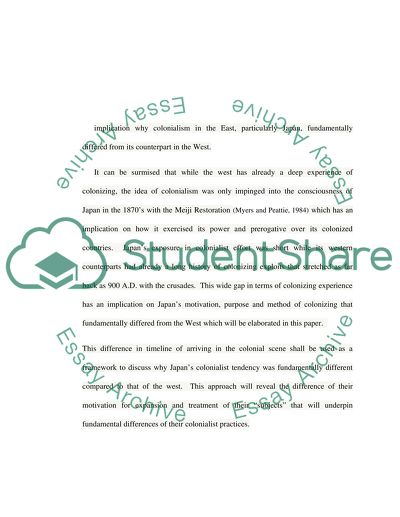Cite this document
(“Japanese colonialism was fundamentally different from western Essay”, n.d.)
Retrieved from https://studentshare.org/history/1431193-ypjapanese-colonialism-was-fundamentally-different
Retrieved from https://studentshare.org/history/1431193-ypjapanese-colonialism-was-fundamentally-different
(Japanese Colonialism Was Fundamentally Different from Western Essay)
https://studentshare.org/history/1431193-ypjapanese-colonialism-was-fundamentally-different.
https://studentshare.org/history/1431193-ypjapanese-colonialism-was-fundamentally-different.
“Japanese Colonialism Was Fundamentally Different from Western Essay”, n.d. https://studentshare.org/history/1431193-ypjapanese-colonialism-was-fundamentally-different.


